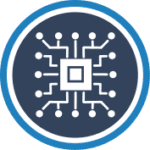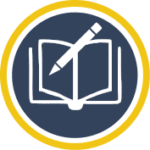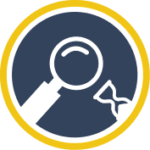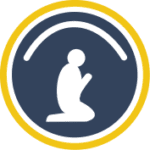Click the links below to find out more about what is included in our Curriculum.
Archway Learning Trust
Curriculum Intent
The Intent of the Archway Curriculum is to empower our pupils to flourish academically, socially, linguistically, morally and spiritually. The Archway Curriculum is the single best opportunity that we have to help our pupils flourish and improve their life chances.
The Archway Curriculum is the embodiment of the transformative vision of the Trust ‘to transform the lives of all through the power of working together’. It is rooted in the Trust’s values of Excellence, Inclusion and Collaboration in the firm belief that all our pupils deserve an excellent, inclusive education. It is expertly designed, carefully curated and precisely sequenced by expert teachers working in collaboration with colleagues across the Trust and incorporating best practice from across the sector.
It is an ambitious, knowledge-rich curriculum, empowering our pupils with the ‘best that has been thought, said and written’. As they progress through the curriculum, our pupils know more and remember more of the powerful knowledge they need to succeed in school, in examinations and in the next steps in their educational journey.
It is an inspiring curriculum, engendering curiosity, enthusiasm and a love for learning and investing pupils with the values, confidence and resilience to contribute positively to their community, to society and to modern Britain.
It is a text-rich curriculum, enabling our pupils to communicate critically and confidently through reading, oracy and writing, delivering on the Trust’s ambition to ensure ‘every child in an Archway school will become a fluent reader’.
It is a diverse curriculum, promoting inclusion, empathy and community cohesion, acting as a window to the full wonders of the world and a mirror in which our pupils can see their own lives and experiences represented, valued and respected.
It is an enabling and equitable curriculum, carefully meeting the needs of every pupil, regardless of prior experience or attainment and overcoming any educational, linguistic, socio-economic or demographic barriers to learning.
Bluecoat Aspley curriculum intent
At Bluecoat Aspley our vision for our curriculum is that during their time at the Academy, students will experience a broad and balanced curriculum that simultaneously nurtures and challenges them. This includes both the knowledge curriculum that is taught within subjects and the extended curriculum that is experienced through our extensive enrichment programme. We understand that as the world evolves, so does the need for our curriculum to do the same.
We take great care to ensure our lessons are sequenced carefully to ensure they are inclusive of all our learners and reflective of the diversity in our family. We aim to develop our pupils to be highly literate and to inspire them to have a love for reading. Our purpose is to raise the aspirations of all our learners throughout their 7 year journey at Bluecoat Aspley. As part of this, higher education and careers links are embedded throughout each students’ learning pathway.
Explore our Teaching and Learning Framework
As a Church of England Academy, our vision is the foundation for everything that we do:
Through believing in ourselves, in others, in God, we aspire to live out our Christian values of faith, hope, family and respect.
Faith
Giving opportunities for students, when appropriate, to respond in faith to different topics that arise as part of their curriculum. All subjects will respond in faith as part of school-wide chaplaincy initiatives.
Hope
Inspiring students in their future steps by igniting aspiration and creating valuable opportunities for growth to aid them on their journey through education and life.
Family
Ensuring that our students feel safe and loved. We celebrate diversity in all its forms, keeping inclusion at the heart of all that we do. Our students are prepared for life in modern Britain and throughout our curriculum and RSHE programme we have embedded opportunities for all to grow in character whilst working with others.
Respect
Growing students who respect themselves and others. We expect all our pupils to be respectful learners, listening to others and learning to accept others points of view.
Archway learning Trust – Curriculum overview
The Archway Curriculum is carefully designed, curated and sequenced to provide the breadth and depth of knowledge which covers in full the content of the National Curriculum and goes significantly further adding breadth, depth challenge and wonder. Our pupils learn powerful substantive and disciplinary knowledge which is carefully sequenced and systematically revisited across all key stages to ensure retention and increase depth over time, developing secure schemas of knowledge.
Curriculum Design – the Archway Curriculum Cornerstones
The Archway Curriculum is designed and continuously developed within these agreed Curriculum Cornerstones:
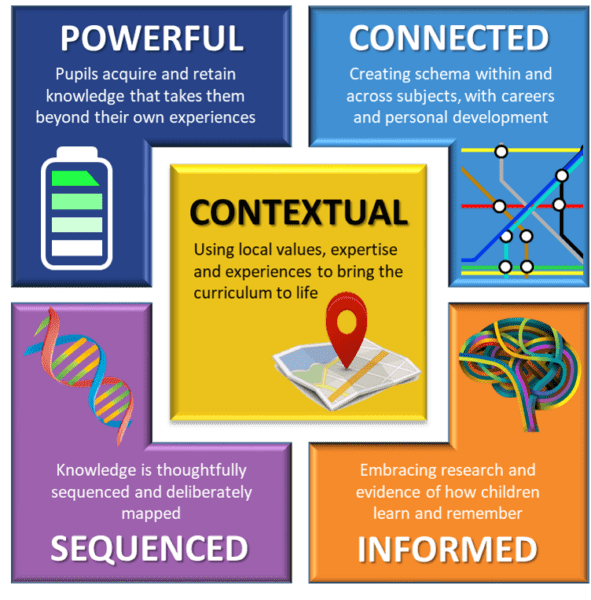
The Curriculum is POWERFUL
Pupils acquire and retain knowledge that takes them beyond their own experiences
The curriculum is CONNECTED
Creating schema within and across subjects, with careers and personal development
The curriculum is SEQUENCED
Knowledge is thoughtfully sequenced and deliberately mapped
The curriculum is INFORMED
Embracing research and evidence of how children learn and remember
The curriculum is CONTEXTUAL
Using local values, expertise and experiences to bring the curriculum to life
The Archway Curriculum includes three ‘framework’ concepts:
- The Macro Curriculum – the model of timetabling, including decisions about the subjects taught and the configuration of allocated time. These decisions are made at a Trust level to ensure equitable experiences and enable the sharing of subject-expert schemes and resources.
- The Archway Curriculum – (see above) the substantive and disciplinary knowledge taught within and across subjects.
- The Extended curriculum – the broader learning experiences which develop pupils’ character, leadership, virtues, resilience and personality beyond the taught curriculum. This involves exposure to cultural capital, spiritual and moral awareness, sporting and creative opportunities and deeper personal enrichment beyond that taught within curriculum subjects. These include, but are not limited to, theatre and museum visits, public-speaking or computer-coding competitions and opportunities to represent the school on a regional or national basis, such as the Word Class Schools awards.
The Macro Curriculum (KS3 and KS4)
At Key stage 3 – In Year 7 and 8 – pupils study a broad and balanced curriculum meeting all requirements of the National Curriculum (hours per fortnight):
- Art (2)
- Music (2)
- Drama (2)
- Design Technology (4)
- Physical Education (4)
- Religious Studies (2)
- Spanish (4)
- History (3)
- Geography (3)
- Science (6)
- English (8)
- Maths (8)
The curriculum time allocation changes slightly in year 9, with a change to the time allocation of the subjects listed below. All other elements retain the same contact time as in year 7 and 8.
- Physical Education (2)
- Religious Studies (4)
In year 10, at the start of KS4 and following a programme of support and guidance, pupils personalise their curriculum and choose three subjects from a range of GCSE and vocational subjects. These are studied in addition to their core curriculum of (hours per fortnight)
- Maths (8)
- English (10)
- Science (11)
- Religious studies (4)
- Physical Education (2)
As one of their options, students must choose from the following subjects (all 5 hours per fortnight):
- Geography
- History
- Computer science
- Spanish
Students can then choose their remaining two options subjects from the list below (all 5 hours per fortnight):
- Geography
- Art and Design
- Health and Social Care
- Food Preparation and Nutrition
- Sociology
- History
- Computer science
- Spanish
- Drama
- Music
- Business Studies
- PE/Sports Studies
Post 16 Programmes of Study
Level 3
Students studying level 3 programmes of study can choose from one of the following pathways:
- 3 x A levels
- A combination of 1 or 2 A levels alongside a double award Applied General Qualification
- 2 x double award Applied General Qualifications
- 1 x T Level
Students may also opt to study Level 3 Mathematical Studies (Core Maths) and/or the Extended Project Qualification alongside their programme of study.
Our A level subject offer includes the following subjects (all 5 hours per week):
- Art
- Biology
- Business
- Chemistry
- Computer Science
- Drama & Theatre
- Economics
- English Language
- English Literature
- Fashion & Textiles
- Further Maths
- Geography
- Graphic Communication
- History
- Languages: French/Spanish
- Mathematics
- Music
- Philosophy, Religion & Ethics
- Photography
- Physical Education
- Physics
- Politics
- Product Design
- Psychology
- Sociology
Our Applied General Qualification offer includes the following subjects:
- BTEC Diploma in Applied Science (10 hours per week)
- BTEC Diploma in Business (10 hours per week)
- WJEC Applied Diploma in Criminology (5 hours per week)
- Cambridge Technicals in IT (5 or 10 hours per week)
- BTEC Diploma in Sport (10 hours per week)
Our T Level offer includes the following subjects (with occupational specialism):
- Education and Early Years (Early Years Educator) (12 hours per week with two days per week on industry placement)
- Health (Adult Nursing) (16 hours per week with one day per week on industry placement)
All our level 3 study programmes exceed 580+ planned learning hours and include the following additional components in addition to students’ timetabled lessons:
- Morning registration – including one weekly Act of Worship
- Supervised independent study
- Tutor period for delivery of RSHE and Careers and Employability programmes
- Critical Thinking for delivery of Core RS programme
- Work experience
Level 2
Students studying level 2 programmes will undertake a level 2 qualification from the list below in addition to maths and/or English GCSE as appropriate (4 hours each per week).
- BTEC Applied Science (12 hours per week)
- BTEC Business (12 hours per week)
- Cambridge Technicals in IT (12 hours per week)
- BTEC Sport (12 hours per week)
- NCFE Cache Health & Social Care (12 hours per week)
All our level 2 study programmes exceed 580+ planned learning hours and include the following additional components in addition to students’ timetabled lessons:
- Morning registration – including one weekly Act of Worship
- Supervised independent study
- Tutor period for delivery of RSHE and Careers and Employability programmes
- Critical Thinking for delivery of Core RS programme
- Work experience
Whilst the curriculum is broadly referred to in key stage phases, the curriculum is designed as one journey for pupils. Learning is sequenced carefully within and across years, to ensure that students acquire both disciplinary and substantive knowledge. Pupils also engage with a wider curriculum to support their personal, spiritual, moral and cultural development – including an immersive PSHE and RSE programme. This is delivered across the curriculum and through the morning tutor programme. The PSHE program follows the statutory guidance for Relationships and Sex Education and Mental Health and Wellbeing which became mandatory in September 2020.
Personal development (PD) is at the heart of our inclusive trust ethos and we ensure each area of the PD curriculum delivers all aspects of the statutory guidance and reflects our specific needs as a school community. This allows pupils to develop into resilient, informed individuals who positively contribute to their community, to society and modern Britain. The program includes topics such as: bullying, crime, cultural diversity, drug and alcohol education, healthy eating, online safety, road safety awareness, prejudice, social & emotional health, wellbeing, sex & relationships and peer pressure.
For further information on any aspect of the curriculum, please contact – Mrs N Devine, ndevine@bluecoat.uk.com


